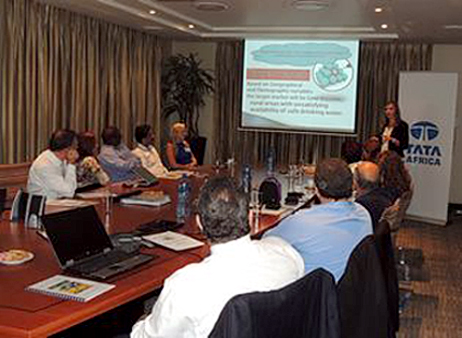
Tata Africa welcomed four top scholarship winners from the University of the Free State’s (UFS’s) Business Management Department who were awarded academic bursaries in 2013 for developing practical marketing strategies for the Tata group companies as part of their studies.
The students presented their winning case studies to a panel of Tata Africa executives and senior managers in Johannesburg.
“The Tata group places social responsibility at the core of its business DNA. This kind of support characterises our commitment to communities where Tata companies operate worldwide,” said Thami Mbele, Managing Director for Tata Africa Holdings.
“The impressive work of the Strategic Marketing students of the University of the Free State’s Business Management Department, who have been using Tata group companies as examples for their practical marketing strategies, deserve recognition,” he added.
To date, Tata has invested R275 000 in the University of the Free State’s talent pool. Over the past six years, Tata Africa has invested over R10 million in scholarships in Africa.
Second-semester students of the Strategic Marketing course, Lebohang Masoabi, Estie Brown, Lynne Harvey and Cecile Boshoff, were given a rare opportunity to apply their theoretical knowledge by developing practical marketing strategies for Tata group companies operating in Africa. Students presented their ideas to a panel of UFS and Tata representatives in 2013, and 27 out of 78 groups were selected to compete for academic bursaries sponsored by Tata.
Through its scholarship programme, Tata Africa is committed to investing in future African entrepreneurs, leaders of industry and business.